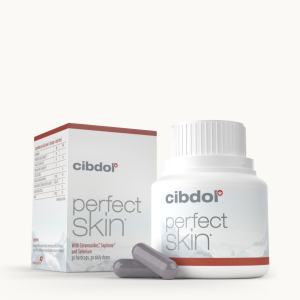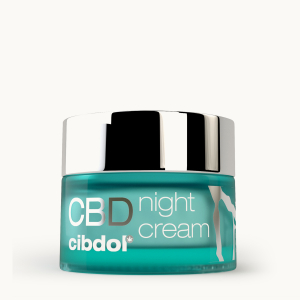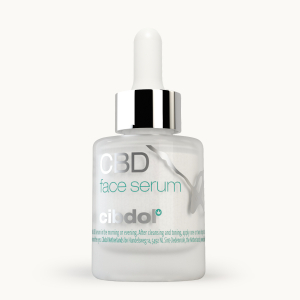Take care of
your skin
Skin Information Page

Love your skin
Your body's largest organ, the skin, is the first line of defence against infection, foreign objects, and the hardships of modern living. Supporting your skin's natural ecosystem is crucial for healthy, glowing skin—skin that looks as good as you feel on the inside.
- What is healthy skin?
- Bad skin: Causes
- Bad skin: Symptoms
- Bad skin: Small changes you can make
- What is the best skincare routine?
- Ingredients that may help
Our skin suggestions
What is healthy skin?
Our skin does an excellent job of protecting us from infection, disease, UV rays, pollution, and much more. Still, even the body's strongest protector needs our support to look and feel at its best. The key to taking care of your skin is not only understanding how it works, but learning to love and promote “healthy skin”.
This means maintaining balance and encouraging moisture for a glowing, youthful feeling. Regardless of skin type, promoting its protective qualities is the best way to combat signs of ageing, tiredness, and dark circles.
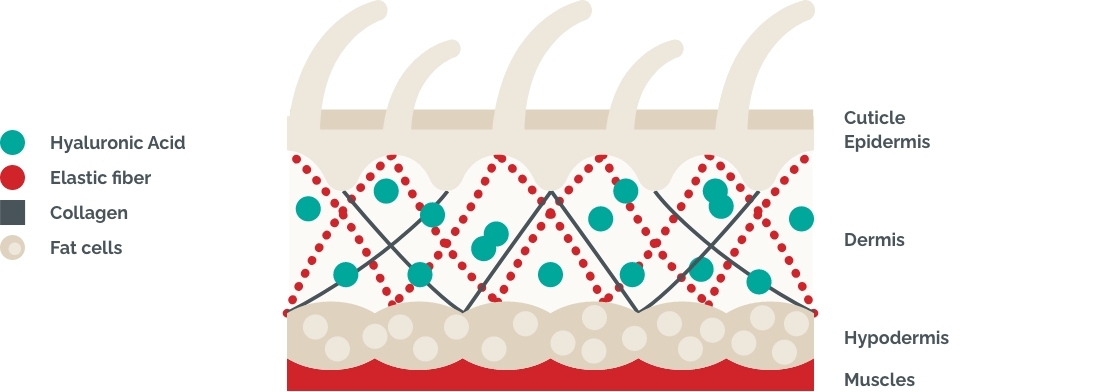
The body’s strongest protector
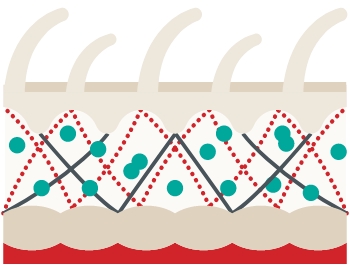
Younger skin
Comprising three layers (epidermis, dermis, and hypodermis), our skin helps to regulate body temperature while providing us with a crucial sensation—touch. It's no surprise that, over time, the skin struggles to keep everything in check, slowly losing its elasticity.
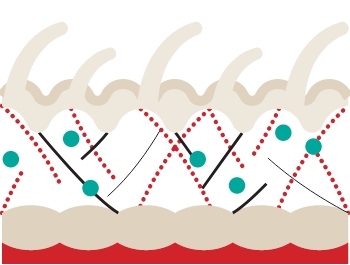
Aging skin
Bad skin: Causes
In situations where the skin is damaged or weakened, various skin conditions can manifest. Left unchecked, these conditions dampen the skin's natural ecosystem, making it difficult to restore healthy, glowing skin and achieve the best version of yourself.
However, by knowing what causes "bad skin", many common skin conditions need only be temporary. Common causes include:

Dehydration
Not drinking enough fluids lessens the skin's ability to remove toxins

Sunlight
Spending too much time in the sun without UV protection can damage the skin and increase the risk of disease

Pollution
Aircon, heating, and poor air quality can all accelerate bad skin symptoms

Smoking
Regular smoking harms and stains skin

Makeup
Blocked pores upset the skin's delicate ecosystem

Lifestyle
Excessive alcohol and fast food intake both encourage free radicals
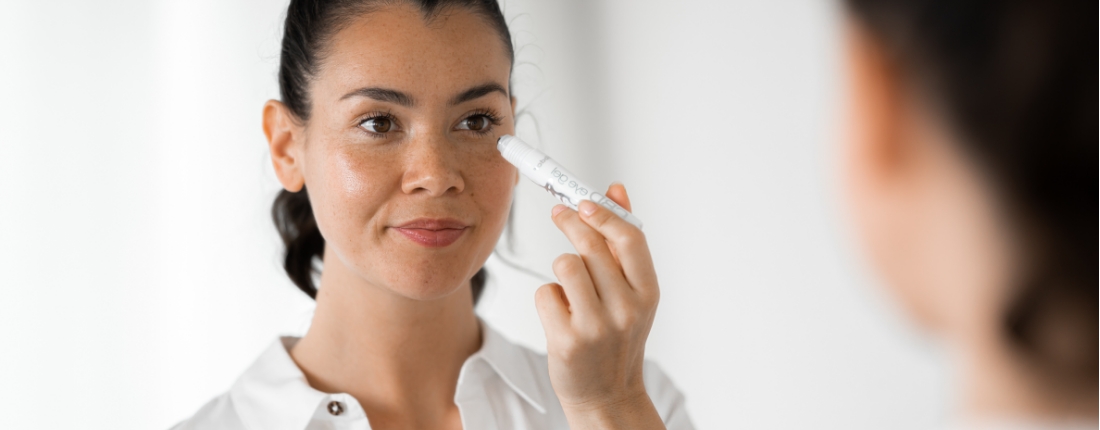
Bad skin: Symptoms
While there are hundreds of possible skin conditions, some are more prevalent than others, such as eczema, psoriasis, and sunburn. Many of these skin complaints share common symptoms, including:
- Red, blotchy, or patchy skin
- Blisters
- Peeling or itching
- Dryness
- Uneven texture
- Slow wound healing
Fortunately, most cases are mild, and with the support of simple lifestyle changes and a regular skincare routine, you can quickly restore the healthy, glowing skin you deserve.
Bad skin: Small changes you can make
Healthy, balanced skin is not only more resistant to disease and disorder, but it looks and feels great too. A few simple lifestyle changes can give it a much-needed boost.
Here are six practical tips for taking care of your skin:
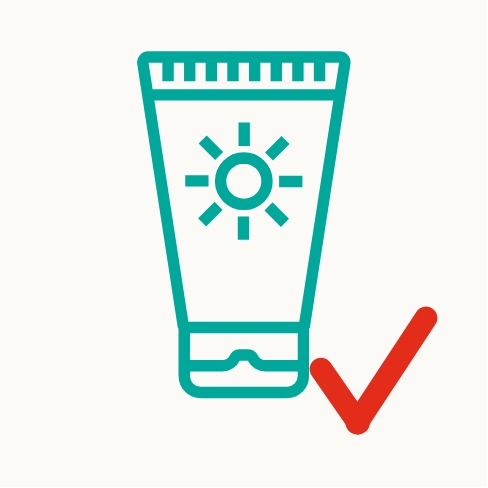
Protect against UV rays
Using at least SPF 15 (or higher) can reduce the damage caused by UVA and UVB rays

Avoid smoking
The only way to prevent the harm from smoking is to quit the habit entirely. There's plenty of support available to help you stop

Breathe clean air
Fresh air is not only good for the skin, but the entire body. Spending 30 minutes a day outside will leave the skin feeling refreshed

Skincare products
Finding skincare products that match your skin type can encourage a natural, healthy glow

Hydration and diet
Drinking plenty of water and eating antioxidant-rich foods bolsters the skin's defensive qualities

Manage stress
One of the first areas in which stress manifests is our skin. Try to get enough sleep, and make time to relax
What is the best skincare routine?
A good skincare routine is vital to healthy-looking skin, but many people simply don't know where to start. Although there are thousands of skincare products, achieving healthy-looking skin doesn't have to be complicated.
No matter what you use, the following three-step approach is the best way to keep your skin feeling fantastic, as it works in tandem with your skin's natural processes.

Cleansing.
The first step in any routine should always be cleansing the skin. By removing harmful elements such as dust, dead skin, and makeup, we provide a cleansed foundation for the following steps—toning and moisturising.

Toning.
Applying a toner removes any lingering impurities, with the bonus of penetrating deeper into the epidermis (the skin's outermost layer) than a cleanser. Toners also help to balance pH and prime the skin for moisturisers.

Moisturising.
With skin primed thanks to cleansing and toning, moisturising helps to restore moisture and keep the skin nourished. Aside from supple skin looking and feeling great, it's also better equipped to deal with contaminants and pollutants.
Ingredients that may help
| Cannabinoids | Cannabidiol (CBD), Cannabinol (CBN) | Cibdol products that contain cannabinoids are: CBD Oil |
Cibdol harnesses the versatility of natural ingredients to deliver a range of skincare formulas that help the skin look and feel at its best.
Frequently Asked Questions
Got questions about your skin?
- What is eczema, and what causes it?
- Eczema, or atopic dermatitis, is a widespread skin condition that causes patches of itchy, dry, and cracked skin. While it's more common in children, it can still occur during adulthood, and one of the worst things is, stress can exacerbate eczema—something there's no shortage of as an adult!
Regrettably, there is no known cure for eczema, but it can go away over time. Researchers also don't know what causes eczema to occur in the first place, but they’ve highlighted a list of possible triggers, including:
• Allergens/food
• Microbes
• Extreme temperature changes
• Stress
• Hormonal imbalance
• Irritants
Fortunately, most cases are mild, and, with the support of eczema creams, symptoms are very manageable. The key is identifying possible triggers and working to reduce or remove them. - What is acne, and what causes it?
- Despite being synonymous with teenagers, acne can occur at any age and is one of the most habitual skin conditions. Acne occurs when skin follicles become blocked with dead cells and natural oils, manifesting as whiteheads, blackheads, and pimples. Severe symptoms also include lumps under the skin (nodules) and cysts.
Unlike eczema, we have a better idea of what causes acne, making the condition easier to manage. However, some genetic factors contribute to acne's severity. No matter the seriousness, possible triggers include:
• Hormonal imbalance
• Medications
• Stress
• Diet
Hormonal imbalance is a common trigger, and partly the reason why acne is more frequent among teenagers. Diet is also a widespread trigger, but probably not the foods you'd expect. You'll be happy to know that chocolate and greasy foods don't contribute to acne—carbohydrate-rich foods are the true culprit. - What is psoriasis, and what causes it?
- Another prevalent skin condition among adults is psoriasis. With psoriasis, cells become confused, rapidly multiplying until a build-up of dead cells sits atop normal skin. Symptoms manifest as red, bumpy, and irritated skin with white scales. Skin is also usually very itchy, creating a lot of discomfort. Any distress is made worse by the fact that the risk areas include the scalp, elbows, and knees.
Psoriasis is another skin condition whose exact cause remains a mystery. However, it tends to run in families, which leads scientists to believe there may be links to a genetic abnormality with the immune system. Other potential triggers include:
• Stress
• Medications (including blood pressure and antimalarial medication)
• Cuts and breaks in the skin
• Strep infections
Despite not knowing the exact cause of psoriasis, there are lots of treatments available. Most involve specialised creams and ointments, with some severe cases benefiting from light therapy and steroid programmes. - What is sunburn, and what causes it?
- Although sunburn isn't a skin condition in the same sense as the cases highlighted above, it's still an all-too-common occurrence. This time, however, we know exactly what causes sunburn—prolonged sunlight exposure. More specifically, it's UV rays from the sun that burn the skin's outer layer, but that's just the damage we can see. UV rays can also damage DNA, leading to skin cancer.
While protection against sunlight is essential for everyone, not all people experience symptoms at the same rate. Your skin type, the sun's intensity, and how long you're exposed all play a part in the severity. Symptoms usually take a few hours to appear, and include:
• Patches of red skin
• Blisters
• Peeling and itching
It's important to note that the impact of sunburn doesn't purely show itself in the skin. Overexposure can also lead to flu, chills, nausea, and headaches. Again, relief comes in the form of creams, gels, and ointments, but the best cure for sunburn is prevention! - How does CBD affect the skin?
- Research is ongoing, but preclinical trials have investigated CBD’s potential to soothe inflammatory skin conditions, protect against ageing, and reduce red, sensitive skin. There's also the psychological impact of CBD to consider. The compound has been probed for a possible reduction in stress and anxiety.
Skin is an organ affected not only by physical factors, but mental well-being too. Addressing physical symptoms is only one part of a complete skincare solution, especially when stress is a prominent trigger in acne, eczema, psoriasis, and dozens of other debilitating skin conditions.
Fortunately, the all-encompassing nature of CBD is a strength that plays directly into the treatment of skin. After all, a complex organ needs a versatile solution! Combined with its lack of toxicity, the compound is proving a powerful ally to existing skincare ingredients and treatments.








